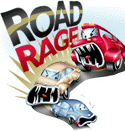Michael Fumento
Factual · Powerful · Original · Iconoclastic
Parental Rage Theory Too Easy
January 01, 2000 · Michael Fumento · the Boston Globe · TransportPlease, spare us the psycho-social interpretation of one very angry guy pummelling another very angry guy to death at a suburban hockey rink.
Parental rage didn’t kill Michael Costin; Thomas Junta did. A jury will decide whether the beating constituted manslaughter or self-defense. The rest of us will have to decide whether the fight between two enraged hockey dads becomes Exhibit A in yet another manufactured social ill.

We make a grand pretense in this country of wanting to understand the nature of violence, but when confronted with its ugly consequences we round out the sharp edges and slap the name of a silly syndrome on it. Road rage. Air rage. Parental rage. Violence — blame it on the lack of open roads, on-time airlines, and openings on the varsity squad.
It is so easy to be seduced by the ample anecdotal evidence. Who hasn’t been cut off in traffic by a profanity-spewing driver? Who hasn’t witnessed a flight attendant being browbeaten by a passenger on a delayed flight? Who hasn’t shuddered at obnoxious parental behavior on the soccer sidelines?
"Oh, yeah, I know fathers just like those guys," we tell each other when we hear that the fight between Costin and Junta at the Burbank Ice Arena in Reading erupted over their sons’ pickup hockey game. But do we really know anyone who would punch someone’s face with such ferocity that the victim was unrecognizable to his family? Do we really think that this kind of violence is triggered by a father’s fantasies of his son playing in the National Hockey League?
It’s true that too many parents have never learned the fundamentals of sportsmanship, that too many drivers forget that they are steering a potentially fatal weapon, that too many self-absorbed airline passengers let their anger jeopardize the safety of their crew and fellow travelers. But the harm in ascribing an individual’s bad behavior to a passing social phenomenon is that it diverts responsibility from where it lies — with the perpetrator and the culture that created him.
Both Costin, 40, and Junta, 42, learned long before either man became a father and a spectator at their children’s sports events that violence is a tool for settling disputes. They each had run-ins with police, both as juveniles and as adults. Costin was only a teenager when his father was convicted of manslaughter for the stabbing death of Costin’s older brother.

Son of "Road Rage": "Airline Rage."
Less dramatically, most boys learn the cultural tolerance of violence the first time they throw a punch in the schoolyard. It’s not that big a leap from socking the boy who teases you at recess to shoving the ticket agent who tells you the flight is cancelled to belting the coach who benches your son during the championship game. It is harder to address and reverse a society’s ingrained acceptance of violence than it is to make up catchy names for a syndrome when that violence flares on the road, in the air, or on the sidelines.
In an Atlantic Monthly article two years ago ("Road Rage" vs. Reality, August 1998), Michael Fumento examined the widely reported "road rage" phenomenon. Far from finding an epidemic of "road warriors," he documented that highway accidents actually had been declining. It was not the statistical reality, but the rhetoric of politicians, pundits, and the psycho-babble industry that had convinced Americans that pulling onto the interstate was a high-risk activity.
Nonetheless, the appeal of the trendy explanation for bad behavior continues unabated. Last week, airline attendants across the country distributed leaflets urging the criminalization of "air rage" when it would seem far easier just to enforce existing statutes prohibiting drunken and disorderly conduct and assault and battery.
It is worth noting that Michael Costin was not the only Massachusetts man to die a violent death last week. Jeffrey and Thomas Sirois got into a fight last Saturday night after an afternoon playing pool and drinking together at the bar at an American Legion post in Fall River. According to witnesses, they exchanged some heated words about their father before taking their dispute outside. Thomas allegedly pulled a shotgun and wounded his brother in the abdomen. He then turned the weapon on himself and fired once, killing himself.
I don’t know why Thomas Sirois, 25, shot his older brother, Jeffrey, 28, that night and then committed suicide. I am, however, willing to bet that sibling rivalry had as much to do with the violence in Fall River as "parental rage" had to do with the homicide in Reading.
